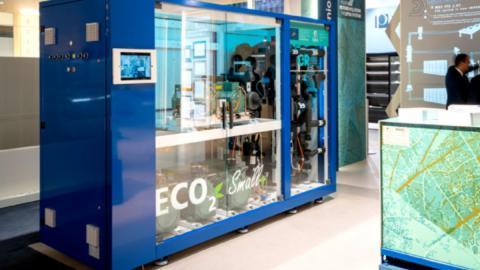
Many of today’s commercial refrigerators contain substances like hydrochlorofluorocarbons (HCFCs) and hydrofluorocarbons (HFCs).
Used as cooling agents, these refrigerants can harm the ozone layer and contribute to emissions. An innovative LIFE project is looking at doing away with these substances altogether. Results to-date are promising and support the recently released European Green Deal – a set of measures aimed at making the Europe the world’s first climate-neutral continent by 2050.
Started in 2018, the LIFE C4R (Carbon 4 Retail Refrigeration) project wants to completely replace HCFCs and HFCs in commercial refrigerators with CO2, which is natural, non-toxic and non-flammable.
“The use of natural refrigerants is the best way to reduce harmful emissions. This is because the amounts used have zero ozone depletion potential and a negligible global warming potential,” explains Francesco Mastrapasqua, project leader of LIFE C4R at EPTA – a global commercial refrigeration company.
LIFE C4R is testing two EPTA technologies: Full Transcritical Efficiency System (FTE2.0) and ETE (Extreme Temperature Efficiency). Both innovations make CO2 usable at higher temperatures, meaning the system can work efficiently in warm climates. They also use 10% less energy than traditional solutions, while installation and maintenance costs are down by 20%.
Supermarket tests
The technologies have already been installed in supermarkets in Italy, Spain and Romania. Further pilots are foreseen in other countries in order to demonstrate how the technology copes in different climates. In addition, a full Life Cycle Analysis will soon be carried out to certify the project’s carbon footprint and environmental performance.
“Our goal is to have our system certified as the industrial standard solution for commercial retail with CO2,” confirms Francesco.
And this certification should soon become reality as the technology has already been recognised at the British RAC Cooling Awards, France’s Perifem Award, Italy’s Prize for Sustainable Development and the German Refrigeration Award.
Multiple uses
Beyond the supermarket, it is hoped that the technology could also be used in cold transportation and in industrial buildings, further reducing emissions and saving energy.
LIFE C4R supports the European Green Deal and its associated upcoming measures like the European Climate Law and Climate Pact.
The project is also in line with the EU’s current regulation on fluorinated gas, which seeks to reduce f-gas emissions by two-thirds by 2030.
Details
- Publication date
- 25 February 2020
